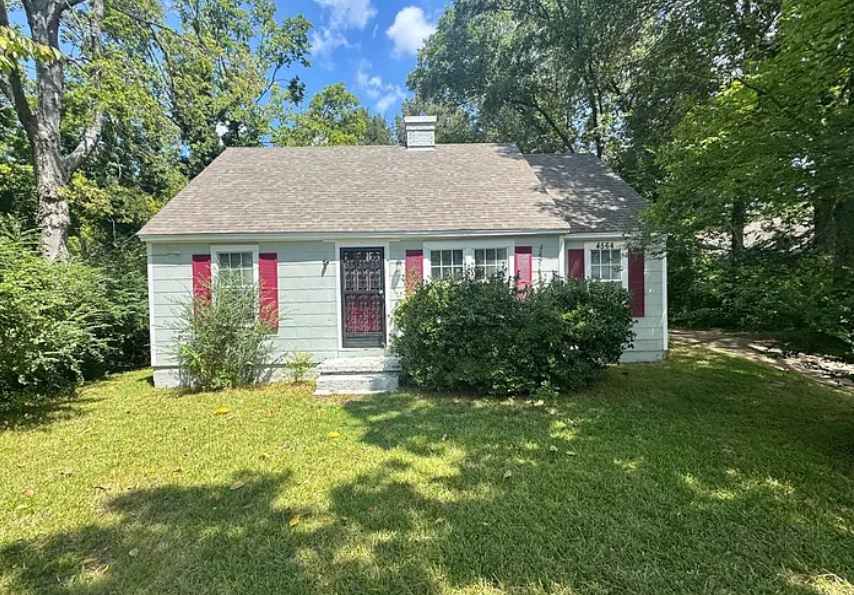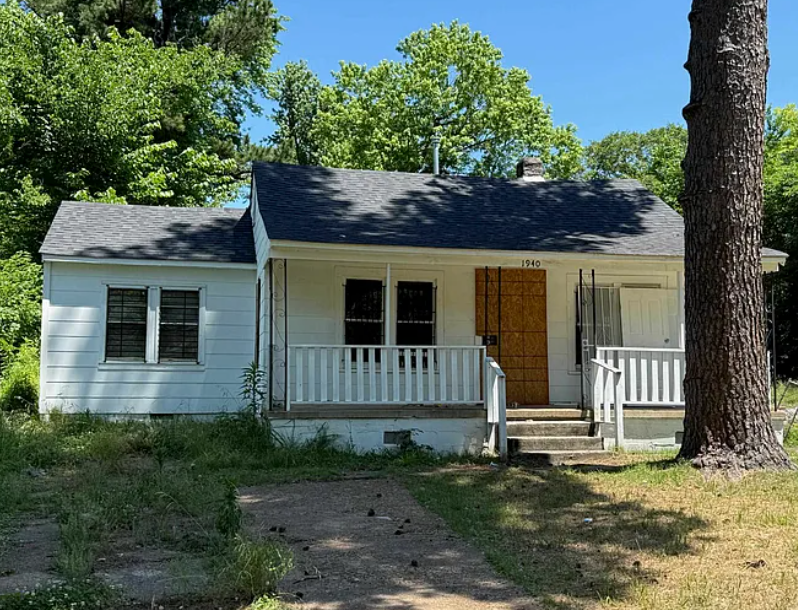Avoid Paying Taxes While Selling Your House in Mississippi
Selling your house can be a daunting task, especially when you think about the taxes that come along with it. However, did you know that there are ways to avoid paying taxes while selling your house in Mississippi? In this blog post, we will take an in-depth look at various strategies that can help you minimize or even eliminate capital gains tax on real estate. From understanding the basics of capital gains tax to utilizing 1031 exchanges and converting your secondary residence to your principal home, we have got you covered. We will also provide you with tips on how to calculate the cost basis of your home and report home sale profits to the IRS. So, if you are planning to sell your house in Mississippi, read on to discover how you can strategically sell your house without paying hefty taxes.
Understanding Capital Gains Tax on Real Estate
Real estate transactions trigger tax implications on the profit from the sale of a property, including your home, that has appreciated in value. The tax rate depends on your taxable income and ownership duration. The IRS publication provides details on the tax burden for real estate investors. Capital gains tax applies to properties and must be reported to the internal revenue service.
The Basics of Capital Gains Tax
When selling your home, a rental property, or investment properties, the capital gains tax is applicable. It's crucial to understand the tax implications to avoid unforeseen circumstances. The capital gain is calculated as the sale price minus the cost basis and closing costs. The tax rate on capital gains may differ from your regular income tax bracket. Consulting with a real estate agent can provide guidance on eligible tax deductions, ensuring you navigate the tax bill effectively while selling your property.
Capital Gains Tax and Your Home Sale
When selling your home, you may qualify for a primary residence exclusion from the internal revenue service. Additionally, the capital gains tax basis for your primary residence can be reduced by home improvements, decreasing your potential tax bill. The IRS website provides comprehensive information on the tax exemptions for your primary home. It is crucial to understand the distinct tax filing status implications for married couples and single filers to accurately determine the tax implications of your home sale. Considering these factors can help minimize the impact of capital gains tax on the much profit you make from the sale.
Criteria and Limitations for Capital Gains Tax
The tax liability is determined by the gain from the property sale, with implications on taxable gain due to tax cuts. Eligibility requirements and use criteria also impact tax implications, varying based on the property sold. The IRS considers specific tax year criteria and gross income for the sale of a house. Real estate tax implications are influenced by the property's nature for tax purposes.
When is a Home Sale Fully Taxable?
Determining the taxability of a home sale depends on various factors. IRS rules outline conditions for partial exclusion from taxes. The tax basis of your home and primary residence exclusion play a role in determining the taxable gain. Additionally, foreign service requirements can impact the tax implications of selling your home.
Exceptional Cases for Capital Gains Tax
Exceptional circumstances, like a job change, may impact your tax basis. The IRS considers the profit made from selling your home and the eligibility requirements for a partial tax exclusion. Similar property transactions can have implications for capital gains tax exemptions. Additionally, your credit score can also affect the tax implications of selling your property.
Utilizing 1031 Exchanges to Minimize Taxes
A 1031 exchange provides a means to postpone paying capital gains taxes on the sale of investment properties by swapping one property for another similar one. The Internal Revenue Service (IRS) governs the regulations for executing a successful 1031 exchange in home sales, allowing real estate investors to reinvest the proceeds from property sales and benefit from a partial exclusion from capital gains tax. This strategy helps taxpayers defer tax bills, as the profit from the sale of the primary home is reinvested, thereby not recognized as ordinary income.
What are 1031 Exchanges?
1031 exchanges offer real estate investors a tax-deferment strategy, allowing them to avoid immediate taxes when selling investment properties. Eligibility requirements set by the IRS must be met for a property to qualify for a 1031 exchange. The tax implications depend on the properties involved in the exchange.
How to Successfully Use a 1031 Exchange in Home Sales
Properly identifying the replacement property is essential for a successful 1031 exchange, meeting IRS purchase price requirements is crucial. Utilizing a 1031 exchange defers the tax burden from investment property sales and timing is critical. The IRS publication outlines tax implications for purchasing a new home under a 1031 exchange, making it vital to understand.
Transforming Your Secondary Residence To Your Principal Home
Changing a secondary residence to a principal home can result in tax implications governed by the Internal Revenue Service (IRS). When a secondary residence, previously used for personal use or rental purposes, is converted into a primary home, it triggers distinct real estate tax implications. The tax advisor plays a crucial role in guiding individuals on the tax consequences of this transformation to ensure compliance with IRS rules and regulations. Depending on the circumstances, the transformation may impact the individual's tax bill, potentially affecting ordinary income, gross income, and the amount of profit realized from the sale of the property.
Benefits of Changing Your Principal Residence
Changing your principal residence allows you to qualify for the primary residence exclusion, effectively avoiding capital gains tax on the sale of your home. By converting your secondary home into your principal residence, you may reduce your tax liability and exclude a significant amount of gain from taxable income when selling your primary residence. The flexibility in designating a property as your principal residence can lead to substantial tax savings. This strategy offers opportunities to optimize tax benefits and minimize your tax bill by strategically designating your primary home.
Steps to Convert Your Secondary Home Into Your Principal Residence
Converting your secondary home into your principal residence involves establishing a genuine intention to use the property as your primary home. Occupying the property for a specific period is crucial, along with documenting your use of the property as your primary residence. Understanding the IRS eligibility requirements when making this conversion is important, and meeting the use requirement and unforeseen circumstances are crucial factors in the process. This transformation can significantly impact your tax bill and may affect your gross income. Personal use of the property as your primary home can also lead to potential tax savings.
Lowering Taxes Through Installment Sales
Structuring the sale of real estate as an installment sale provides a tax-deferral opportunity, spreading the tax liability over several years and potentially reducing the overall tax burden. By deferring taxes on the gain from the property sale, this method offers significant advantages. Understanding the tax implications of installment sales is crucial for effectively lowering taxes on real estate transactions. Utilizing this approach can help manage internal revenue service obligations and avoid an immediate large tax bill by spreading the gain over time, potentially resulting in lower taxes on the gross income from the sale.
An Overview of Installment Sales
When selling real estate, an installment sale involves receiving a portion of the sale price over multiple tax years, providing a way to defer tax on the gain from the property sale. The IRS has specific rules governing installment sales for tax purposes, making it essential to recognize eligibility requirements and tax implications. Understanding these intricacies is vital as installment sales can be a tax-efficient strategy for lowering taxes on real estate transactions. By structuring the sale as an installment sale, individuals can spread out their tax bill and potentially reduce their gross income from the sale, which may result in a lower tax liability.
The Role of Installment Sales in Reducing Taxes
When selling your property, utilizing installment sales offers a tax-efficient approach to manage the tax consequences. This method allows you to spread the gain from the sale over time, potentially reducing your tax liability. It provides a tax-planning strategy to minimize the immediate tax impact of property sales by easing the tax burden associated with the transaction. Understanding the tax basis and use requirement in installment sales is essential for tax reduction, and it can be a beneficial tool for managing your tax bill.
Calculating the Cost Basis of Your Home
Determining the original cost of your home is crucial in calculating the cost basis, which comprises the purchase price, closing costs, and home improvements. Adjusted home basis considers any depreciation or casualty losses on the property, playing a vital role in accurate tax reporting. Calculating the cost basis is essential for determining the taxable gain on the sale of your home. Understanding these components ensures compliance with internal revenue service regulations and accurately determines your tax bill. Additionally, this computation affects the amount of gross income and ultimately impacts the tax liability on the sale of your primary home.
Determining the Original Cost of Your Home
Accurately determining the original cost of your home involves considering various factors. The purchase price, closing costs, and real estate agent fees all contribute to the original cost. Additionally, home improvements such as renovations and additions are essential components. This determination is crucial for calculating the cost basis, which in turn helps determine the taxable gain when selling your home. Maintaining detailed records of the original cost of your home is vital for accurate tax reporting and compliance with the internal revenue service.
Understanding Adjusted Home Basis
Calculating the adjusted home basis is crucial for accurate tax reporting on the sale of your primary home in Mississippi. It accounts for depreciation, casualty losses, and home improvements, impacting the taxable gain. The internal revenue service requires a precise determination of the adjusted home basis to calculate the tax bill. Any depreciation or casualty losses can affect how much profit you make from the sale and impact your gross income as it's treated as ordinary income. Therefore, understanding the adjustments to the cost basis of your property is essential for minimizing taxes and complying with IRS regulations.
Reporting Home Sale Profits to the IRS
Knowing the appropriate time and method to declare profits from selling your home is critical for adhering to IRS regulations. Filing the correct tax forms is necessary when reporting proceeds from a home sale to the internal revenue service. Understanding the tax consequences of home sale earnings is vital for precise reporting to the IRS. Adhering to IRS protocols for declaring home sale profits is crucial to prevent penalties. Accurately documenting home sale profits for IRS purposes is a fundamental aspect of real estate transactions.
When and How to Report Home Sale Proceeds
When reporting income tax return, it's essential to report home sale proceeds to the internal revenue service. Commonly used tax forms for this purpose include Form 8949 and Schedule D. Accuracy in providing sale details on these forms is crucial for IRS compliance. Understanding the tax filing status and applicable deductions is also important when reporting home sale proceeds. Additionally, it's vital to consider potential tax exemptions and exclusions when reporting to the IRS. Consideration of these aspects can have a significant impact on your tax bill and ordinary income.
Special Circumstances: Divorce and Military Personnel
When selling a house during a divorce, tax liability can be impacted, and different rules apply to the exclusion of gain from the sale of a home for divorcing couples. Military personnel also have special tax considerations when selling a property, with extended tax deadlines due to service requirements. The sale of a property during a divorce may have tax implications on capital gains, making it essential to consider these factors in real estate transactions. Understanding these special circumstances is crucial for accurate reporting to the Internal Revenue Service (IRS) and compliance with tax regulations.
How Divorce Impacts Home Sales and Taxes
When selling a home during a divorce, the tax liability can be influenced. A married couple has the opportunity to exclude a certain amount of gain from taxes upon selling a home; however, divorce can alter the eligibility requirements for this exclusion. The IRS website offers comprehensive information on the tax implications of selling a home amidst a divorce. The tax implications of the sale of a home during a divorce are determined by how the property was utilized before, during, and after the marriage.
How Can I Strategically Sell My House to Avoid Paying Taxes?
Looking to sell your house without paying hefty taxes? Strategically plan your sale with the help of a tax advisor. Understand the tax implications, exemptions, and your property's tax basis. Keep unforeseen circumstances in mind to avoid unnecessary tax liabilities.
Frequently Asked Questions
Are there any tax exemptions or deductions available for home sellers in Mississippi?
Mississippi offers tax exemptions and deductions for home sellers. Unlike some states, Mississippi does not have a state-level capital gains tax on home sales. Homeowners can deduct expenses like real estate agent fees and closing costs. Certain criteria, such as being a military veteran or over 65 years old, may qualify for additional exemptions. It's advisable to consult with a tax professional to understand eligibility and options.
Conclusion
Selling your house in Mississippi can be a complex process, especially when it comes to taxes. Understanding the ins and outs of capital gains tax, utilizing 1031 exchanges, transforming your secondary residence into your principal home, and lowering taxes through installment sales are all strategies that can help you minimize your tax burden. Additionally, calculating the cost basis of your home and reporting home sale profits to the IRS correctly are crucial for staying in compliance with tax laws. If you need guidance on strategically selling your house to avoid paying taxes, our experts are here to help. Get in touch with us today for personalized advice tailored to your specific situation.
Request Your Offer Now











